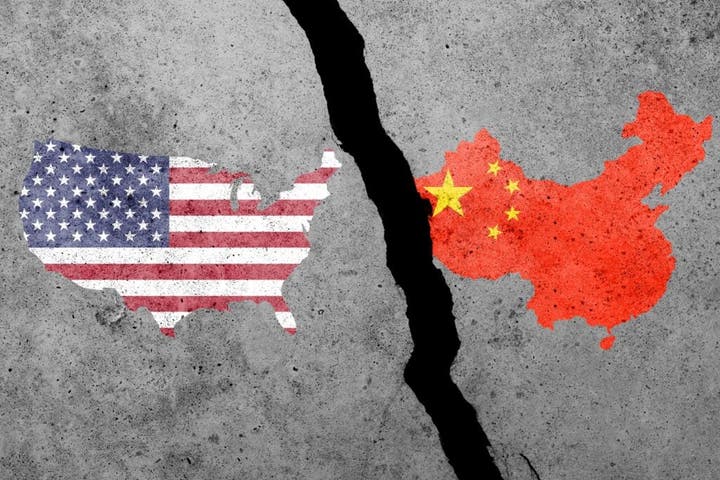World
Pete Hegseth Criticizes China’s Actions, Offers US Support in SEA

During multilateral defense talks held in Kuala Lumpur on Saturday, U.S. Pentagon chief Pete Hegseth condemned China’s “destabilizing actions” in the South China Sea. As tensions continue to rise in the region, Hegseth pledged the United States’ technological support to Southeast Asian nations in their efforts to counter Chinese threats.
The discussions involved representatives from the Association of Southeast Asian Nations (ASEAN), including officials from Australia, Japan, and the Philippines. Hegseth emphasized the urgent need for collaborative maritime monitoring capabilities, stating, “You see firsthand the threats we all face from China’s aggression in the South China Sea and beyond.”
U.S. Commitment to Regional Allies
Hegseth highlighted the importance of creating systems for cooperative responses and monitoring tools to ensure that nations facing aggression do not stand alone. He remarked that no country can innovate and scale like the United States, expressing eagerness to share these capabilities with allies and partners. This initiative aims to strengthen the defense capabilities of Southeast Asian nations against potential incursions.
China has claimed sovereignty over nearly the entire South China Sea, asserting its rights through a line on maps that crosses the exclusive economic zones of several nations, including Brunei, Indonesia, Malaysia, the Philippines, and Vietnam. Reports indicate that the Chinese Coast Guard has deployed ships hundreds of kilometers from its mainland, resulting in multiple confrontations with Philippine vessels and alleged interference in energy operations in Malaysia and Vietnam.
The Chinese government maintains that its coast guard operates professionally to protect its territory, denying any aggressive behavior. Last year, China criticized the United States for what it termed “dangerous and destabilizing actions” in the South China Sea. On Friday, during the defense talks, Chinese Defense Minister Dong Jun called for cooperation between China and ASEAN to “pool Eastern strength” for peace and stability in the region.
Nuclear Testing and Strategic Partnerships
Hegseth’s visit coincided with statements made by former President Donald Trump on Truth Social, where he announced plans for the U.S. military to initiate nuclear weapons testing. When questioned by reporters from CNBC about the specifics of these tests, Hegseth stated that further information would be provided later. He underscored the Pentagon’s readiness, asserting, “We have very capable nuclear capabilities, and testing them is only prudent.”
Additionally, Hegseth announced that he signed a ten-year U.S.-India Defense Framework with Indian Defense Minister Rajnath Singh, describing it as a cornerstone for regional stability and deterrence. He assured his ASEAN counterparts that the United States seeks peace, emphasizing the necessity of preventing China from dominating Southeast Asia or any other nation.
As geopolitical tensions continue to evolve, Hegseth’s statements reflect a commitment to supporting regional allies in safeguarding their sovereignty and ensuring a balanced power dynamic in the South China Sea.
-

 Top Stories1 month ago
Top Stories1 month agoRachel Campos-Duffy Exits FOX Noticias; Andrea Linares Steps In
-

 Top Stories1 week ago
Top Stories1 week agoPiper Rockelle Shatters Record with $2.3M First Day on OnlyFans
-

 Top Stories6 days ago
Top Stories6 days agoMeta’s 2026 AI Policy Sparks Outrage Over Privacy Concerns
-

 Sports5 days ago
Sports5 days agoLeon Goretzka Considers Barcelona Move as Transfer Window Approaches
-

 Top Stories1 week ago
Top Stories1 week agoUrgent Update: Denver Fire Forces Mass Evacuations, 100+ Firefighters Battling Blaze
-

 Top Stories1 week ago
Top Stories1 week agoOnlyFans Creator Lily Phillips Reconnects with Faith in Rebaptism
-

 Top Stories5 days ago
Top Stories5 days agoWarnock Joins Buddhist Monks on Urgent 2,300-Mile Peace Walk
-

 Entertainment6 days ago
Entertainment6 days agoTom Brady Signals Disinterest in Alix Earle Over Privacy Concerns
-

 Top Stories7 days ago
Top Stories7 days agoOregon Pilot and Three Niece Die in Arizona Helicopter Crash
-

 Top Stories4 days ago
Top Stories4 days agoCBS Officially Renames Yellowstone Spin-off to Marshals
-

 Health2 months ago
Health2 months agoTerry Bradshaw Updates Fans on Health After Absence from FOX NFL Sunday
-

 Sports4 days ago
Sports4 days agoSouth Carolina Faces Arkansas in Key Women’s Basketball Clash




